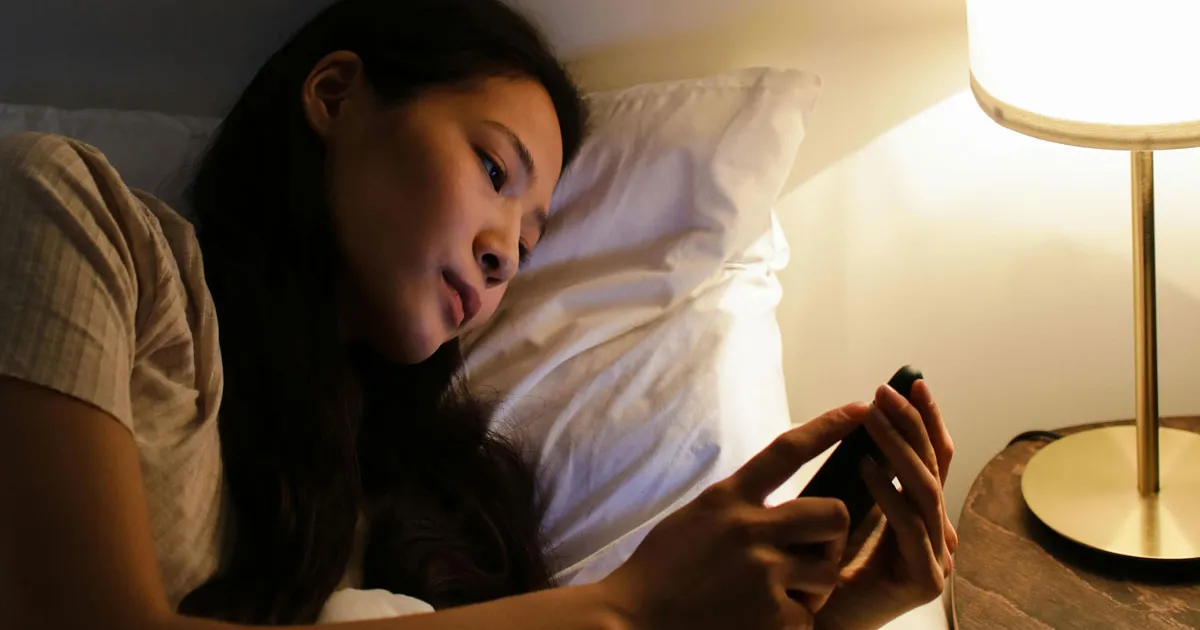Copyright thenewdaily

Exposure to bright light at night – including scrolling on a phone or falling asleep with the television on – could increase your risk of developing serious heart problems. New research led by Adelaide’s Flinders University and involving data from nearly 89,000 people aged over 40 found that those who were exposed to the brightest light at night were 47 per cent more likely to have a heart attack. They also had a 56 per cent higher chance of heart failure. “This is the first large-scale study to show that simply being exposed to light at night is a strong and independent risk factor for heart disease,” lead author Dr Daniel Windred said. “Disrupting your body’s internal circadian clock by repeatedly exposing yourself to bright light at night, when it would typically be dark otherwise, will put you at a higher risk of developing dangerous heart issues.” The study’s researchers come from Flinders Health and Medical Research Institutes’s Sleep Health – the same institution involved in the 2024 SBS documentary Australia’s Sleep Revolution with Dr Michael Mosley. They tracked more than 13 millions hours of light exposure data gathered from light sensors worn on the wrists of the study’s participants, all of whom were volunteers from the UK Biobank. Those cardiovascular records of the participants were then tracked across 9½ years. Even taking into account other risk factors such as smoking, alcohol consumption, diet and exercise, the study found individuals with the “brightest nights” had significantly higher risk (23 to 32 per cent) of developing coronary artery disease compared with those with the darkest nights. It also observed a much higher risk of stroke and atrial fibrillation (irregular or very rapid heart beat). While the research findings – published in JAMA Network Open – were consistent with the higher cardiovascular risks observed in rotating shift workers and people living in brightly lit cities, they showed that they are not the only ones affected by bright light. “Everyday habits, like scrolling on your phone in bed or falling asleep with the TV on or bedroom lights on, can expose you to potentially harmful levels of light,” said Associate Professor Andrew Phillips. “We’re not talking about extreme cases – even low levels of indoor light can interfere with your body’s natural rhythm.” Given that we’ve previously been told that the blue light emitted by phone screens suppresses melatonin, a hormone that helps regulate sleep, the research is just another reason to avoid using your mobile in bed. Phillips said people could also reduce the health risks posed by light at night by using blackout curtains and dimming lights. Women, who generally have a lower risk of heart failure than men, seemed to be particularly sensitive to the effects of light disrupting their body clock, the researchers said. The study’s authors acknowledged limitations to their research, including that information about light exposure sources was not available. This meant they couldn’t adjust for “behavioural correlates” of night-light exposure –for example, “light from stimulating digital content”. Nonetheless, they are urging further research into the lighting guidelines for homes, hospitals and cities to help reduce night-time light exposure. “We need to take our body clocks seriously,” senior co-author Professor Sean Cain said. “Protecting our natural sleep rhythms could be a powerful way to fight heart disease.”



